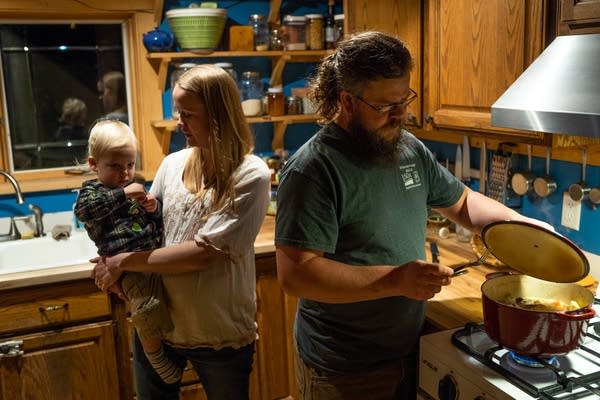Rural hospitals retreat from delivering babies; small towns pay the price

Yvette Ibrahim holds 2-year-old Zein while her husband, Tamer, heats up dinner in their home outside of Grand Marais, Minn., in December.
Evan Frost | MPR News
Go Deeper.
Create an account or log in to save stories.
Like this?
Thanks for liking this story! We have added it to a list of your favorite stories.


